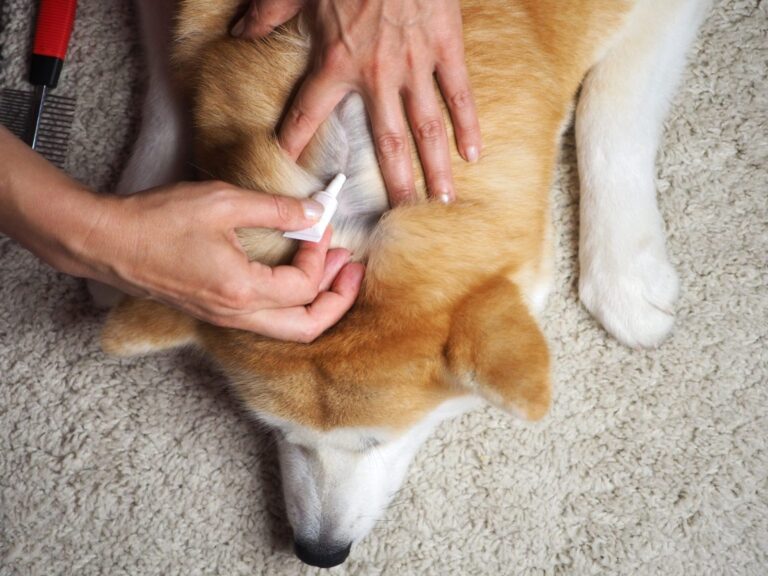The debate over the use of flea killers containing insecticides on pets, especially dogs and cats, has intensified in recent years. Groundbreaking research conducted by the University of Sussex and Imperial College London reveals the alarming presence of toxic substances in these products and highlights the potential risks they pose to both animals and the environment. I made it.
The study found that commonly used flea killers, including insecticides such as fipronil and imidacloprid, can cause significant contamination. Pet parents may be unaware of the extent of the danger and risk being exposed to these harmful chemicals for up to 28 days after treating their furry companion. The results of this study reveal the alarming reality of inadvertent contamination of rivers and waterways due to runoff of these pesticides.
Biologist Professor Dave Golson, who oversaw the research, expressed deep concern about the widespread use of these neurotoxic pesticides. He highlighted the negative effects on both wildlife and human health and urged a reassessment of current veterinary practice regarding flea treatment recommendations.
One of the key findings of this study was the unnecessary preventive use of flea treatments, which are often recommended by veterinarians even when fleas are not present. Although well-intentioned, this practice contributes significantly to environmental pollution without providing any tangible benefit to pets. Professor Goulson advocates for a smarter approach, encouraging veterinarians to reconsider the need for such treatments and encourage alternative methods such as regular pet bedding sanitation to deter flea infestations. is proposed.
Additionally, this study revealed that risk assessment surrounding the use of pet parasitic agents is inadequate. Despite growing evidence of environmental and health impacts, regulatory oversight remains inadequate. The presence of neonicotinoids, a group of insecticides to which imidacloprid belongs, in children's cerebrospinal fluid raises worrying questions about the long-term effects of exposure.
These findings have led to calls for greater awareness among pet parents and veterinarians alike. Anna Judson, President of the British Veterinary Association, stressed the importance of balancing the need for parasite control with the potential risks posed by insecticide-based treatments. The focus on pet care is shifting to a more holistic approach that prioritizes both animal welfare and the environment.


Earthlings For Life by Tiny Rescue: Climate Collection
Related content:
Simple ways to help the planet:
- Reduce meat intake: download food monsteris the largest plant-based recipe app on the App Store that helps you reduce your environmental footprint, save animals, and get healthy. You can also purchase hard or soft copies. Favorite Vegan Cookbook.
- Reduce the footprint of fast fashion. Take action against fast fashion pollution and take the initiative by supporting sustainable and circular brands. tiny rescue Raise awareness about important issues through zero-waste, recycled clothing designed to be returned and remade over and over again.
- Supporting independent media: Public funding gives us a huge opportunity to continue to provide high quality content.Please think about it supports us By donating!
- Sign the petition: Your voice matters! You can turn your petition into a victory by signing the latest list. Must sign the petition To help people, animals and the planet.
- Stay informed: Subscribe to get the latest news and important articles on animals, environment, sustainable living, food, health and human interest. our newsletter!
- Please do what you can: Reduce waste, plant trees, eat local, travel responsibly, reuse things, say no to single-use plastics, recycle, vote wisely, switch to cold washing, fossil Retire from fuel, conserve water, shop wisely, donate when you can, grow food, volunteer, save energy, compost. And don't forget about microplastics and microbeads that can be found in common household and personal care products.


